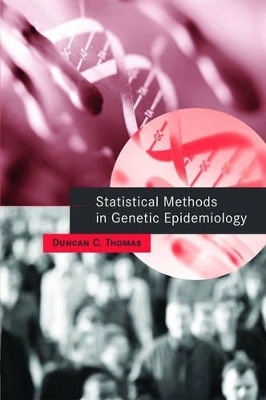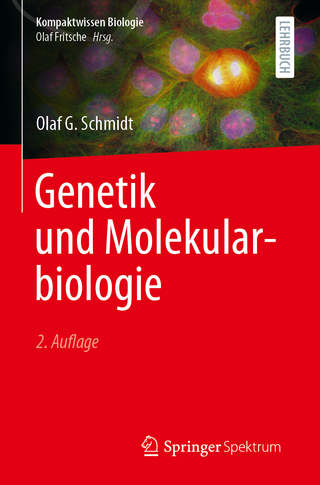
Statistical Methods in Genetic Epidemiology
Oxford University Press Inc (Verlag)
978-0-19-515939-4 (ISBN)
This well-organized and clearly written text has a unique focus on methods of identifying the joint effects of genes and environment on disease patterns. It follows the natural sequence of research, taking readers through the study designs and statistical analysis techniques for determining whether a trait runs in families, testing hypotheses about whether a familial tendency is due to genetic or environmental factors or both, estimating the parameters of a genetic model, localizing and ultimately isolating the responsible genes, and finally characterizing their effects in the population. Examples from the literature on the genetic epidemiology of breast and colorectal cancer, among other diseases, illustrate this process. Although the book is oriented primarily towards graduate students in epidemiology, biostatistics and human genetics, it will also serve as a comprehensive reference work for researchers. Introductory chapters on molecular biology, Mendelian genetics, epidemiology, statistics, and population genetics will help make the book accessible to those coming from one of these fields without a background in the others. It strikes a good balance between epidemiologic study designs and statistical methods of data analysis.
Duncan C Thomas, Ph.D., is Professor of Preventive Medicine, Director of the Biostatistics Division, and Verna R Richter Chair in Cancer Research at the University of Southern California Keck School of Medicine. His primary research interest has been in the development of statistical methods for cancer epidemiology, but he also has wide-ranging interest in both environmental and genetic epidemiology. Dr Thomas also chairs organizing committees for the Genetic Analysis Workshop and the Informatics Consortium for the NCI Cooperative Family Registries for Breast and Colorectal Cancer, and he is a past President of the International Genetic Epidemiology Society.
1. Overview of genetic epidemiology ; 2. Basic concepts of molecular genetics ; 3. Principles of Mendelian inheritance ; 4. Basic epidemiologic and statistical principles ; 5. Familial aggregation ; 6. Segregation analysis ; 7. Linkage analysis ; 8. Principles of population genetics ; 9. Testing candidate gene associations ; 10. Linkage disequilibrium mapping ; 11. Gene characterization ; 12. Tying it all together: the genetic epidemiology of colorectal cancer ; Glossary
| Erscheint lt. Verlag | 11.3.2004 |
|---|---|
| Zusatzinfo | numerous line illustrations |
| Verlagsort | New York |
| Sprache | englisch |
| Maße | 164 x 239 mm |
| Gewicht | 798 g |
| Themenwelt | Medizin / Pharmazie ► Medizinische Fachgebiete |
| Studium ► 2. Studienabschnitt (Klinik) ► Humangenetik | |
| Studium ► Querschnittsbereiche ► Epidemiologie / Med. Biometrie | |
| ISBN-10 | 0-19-515939-X / 019515939X |
| ISBN-13 | 978-0-19-515939-4 / 9780195159394 |
| Zustand | Neuware |
| Haben Sie eine Frage zum Produkt? |
aus dem Bereich


